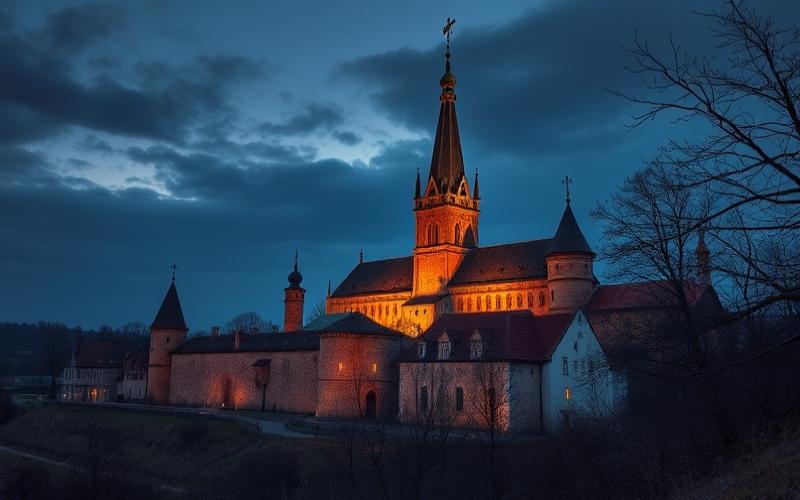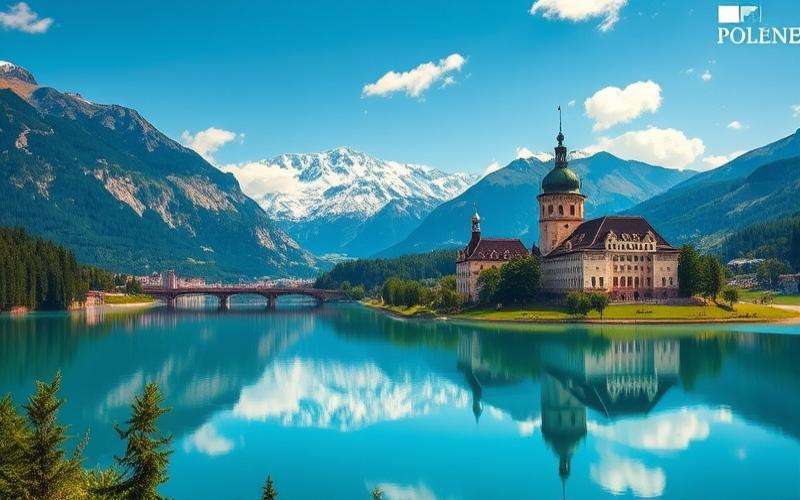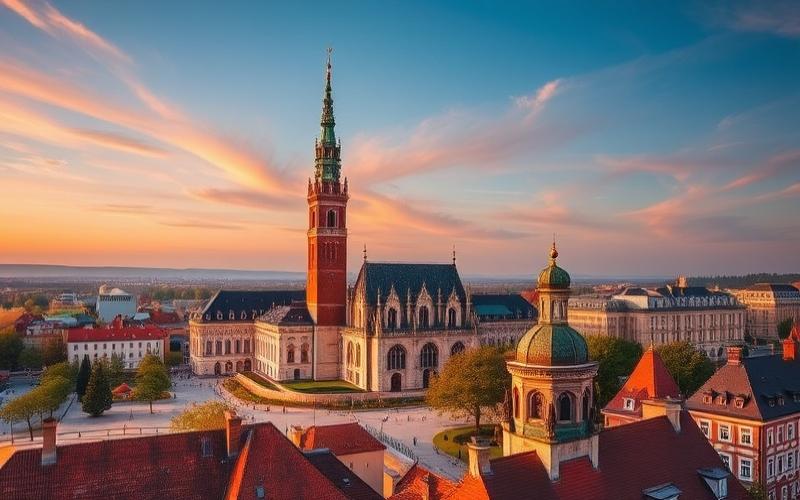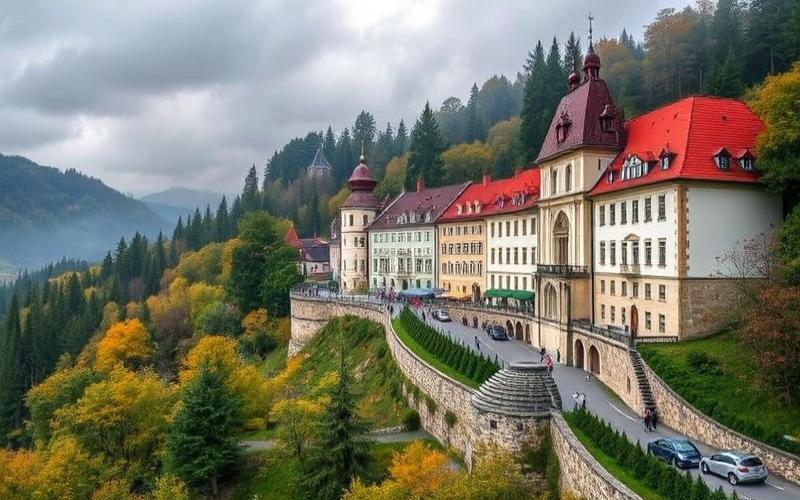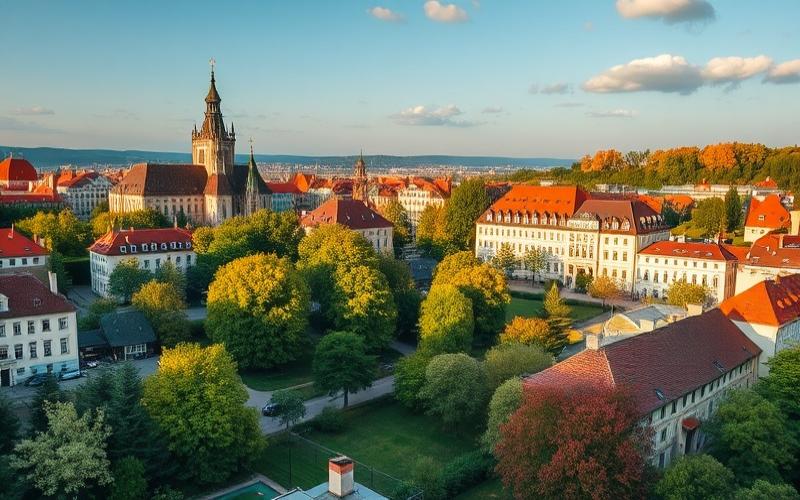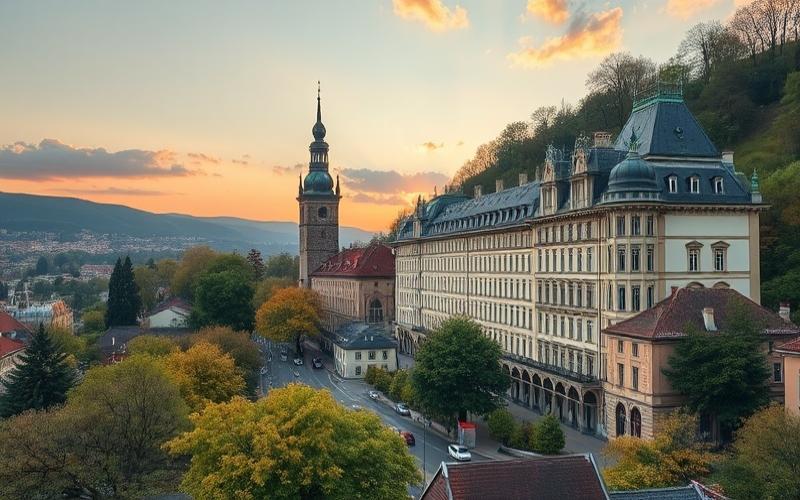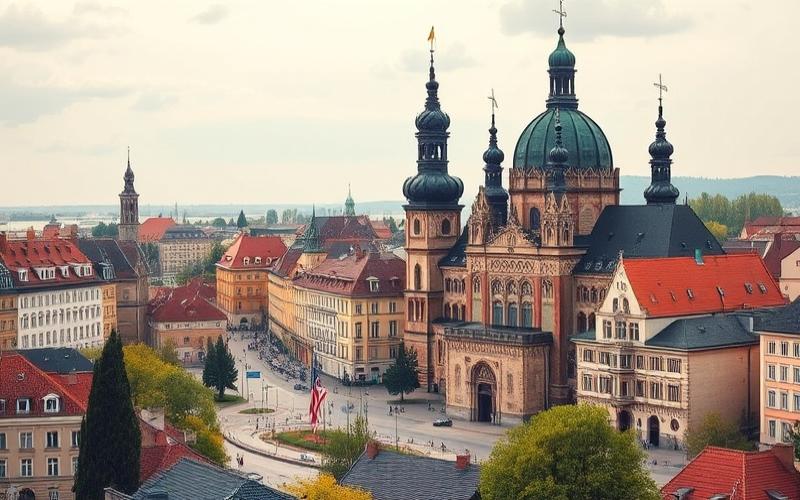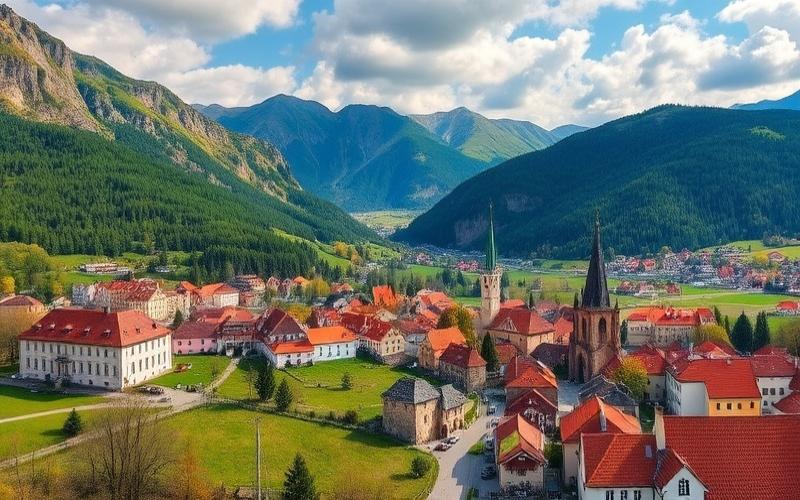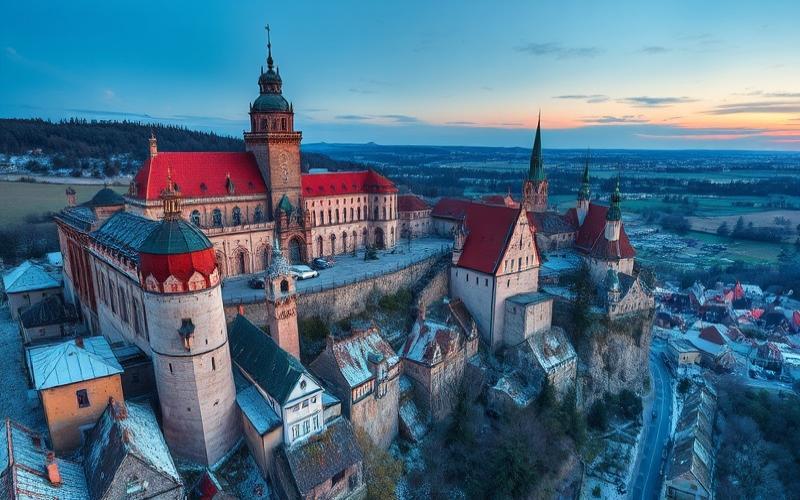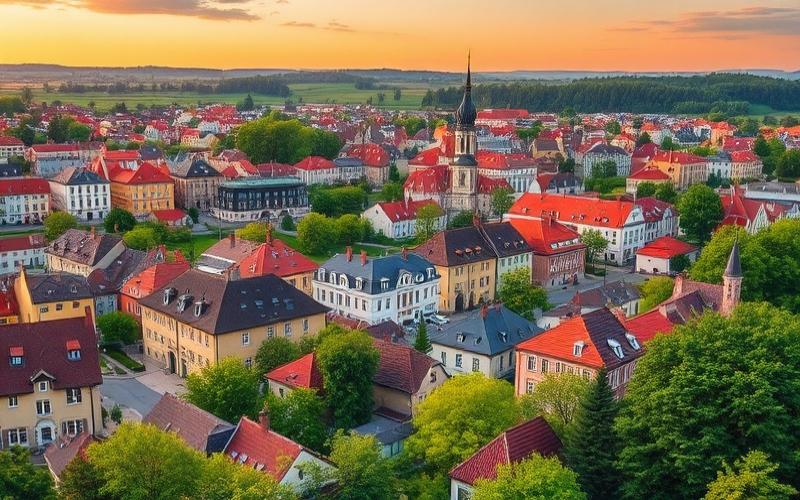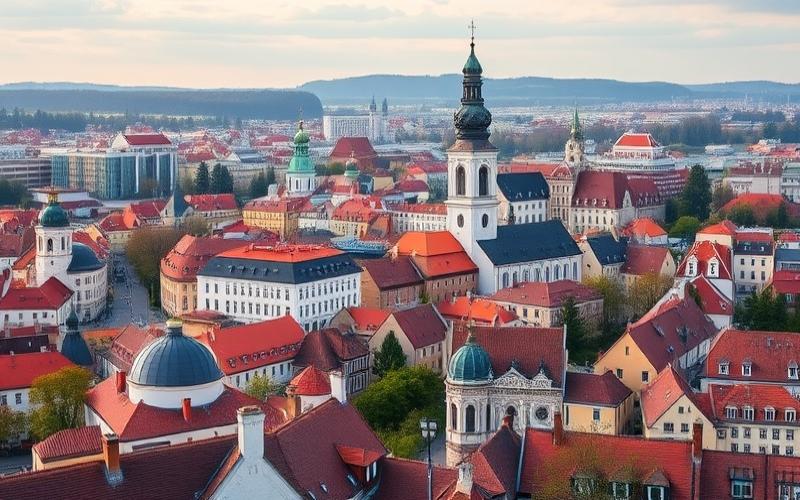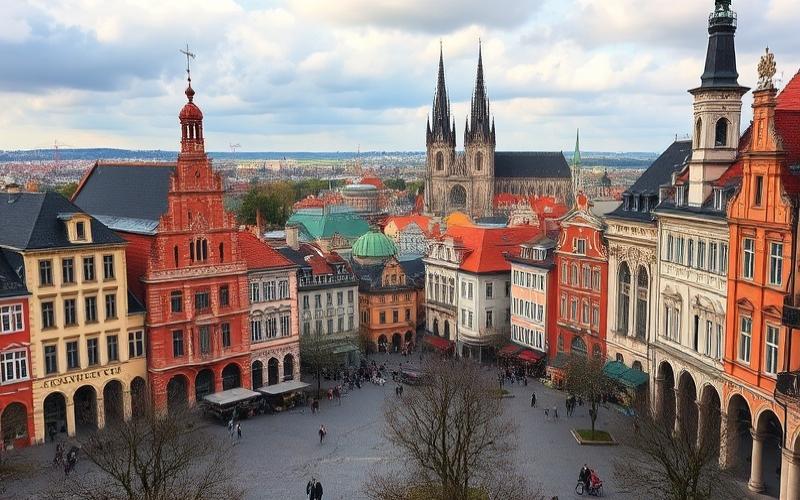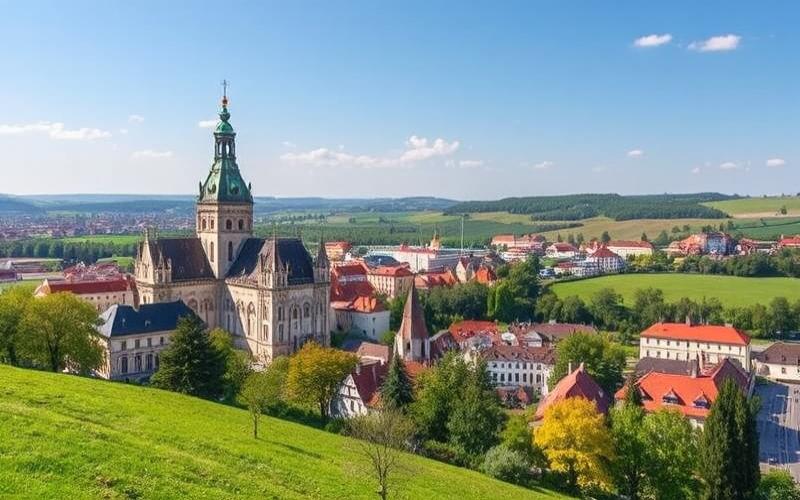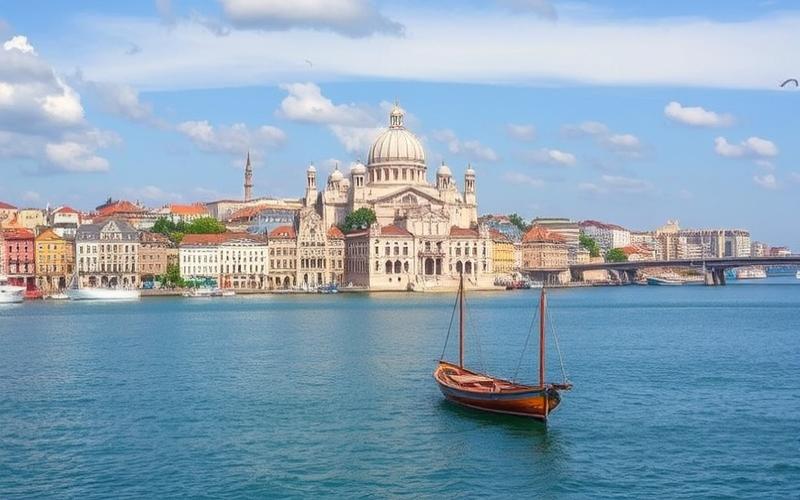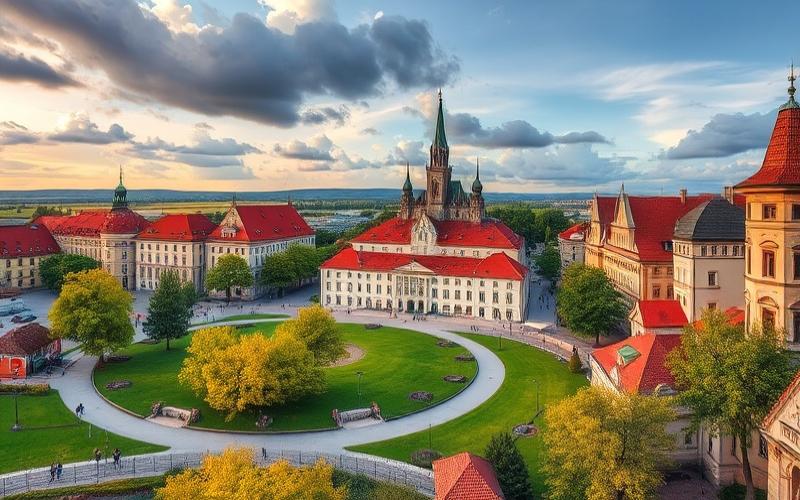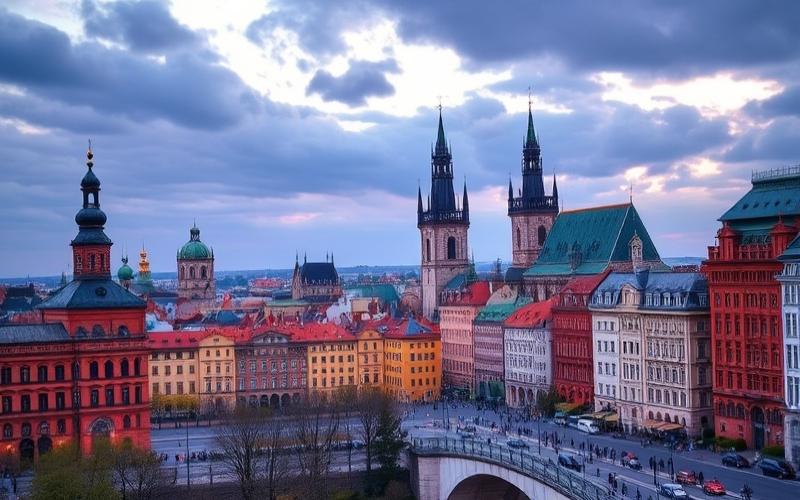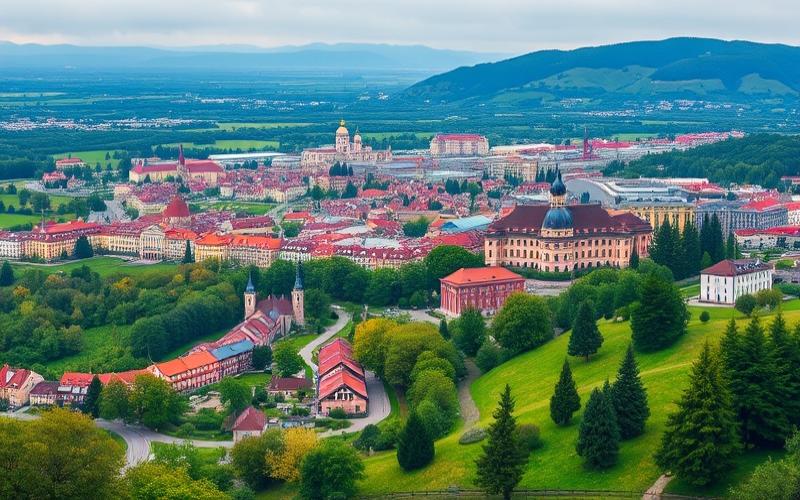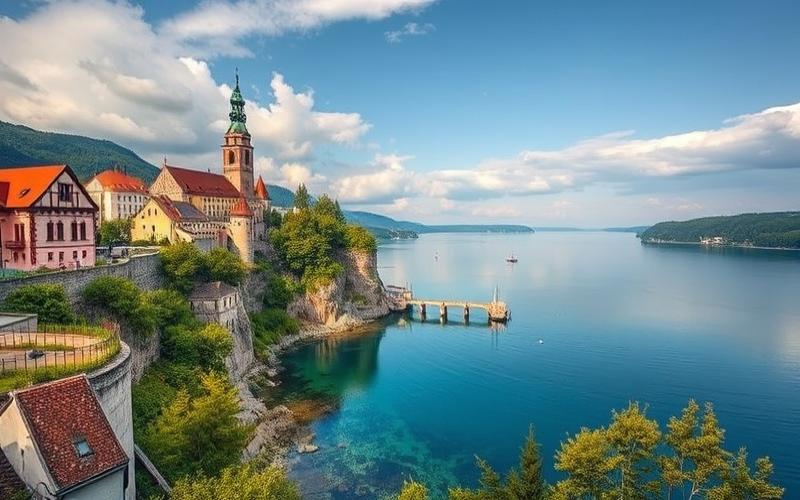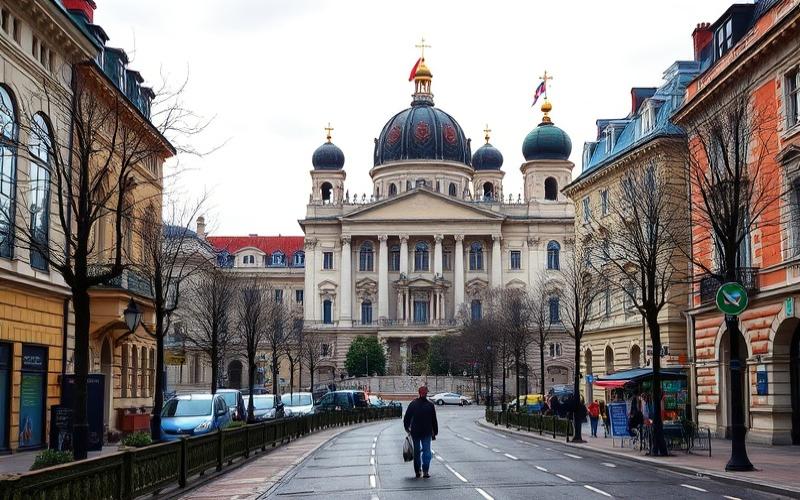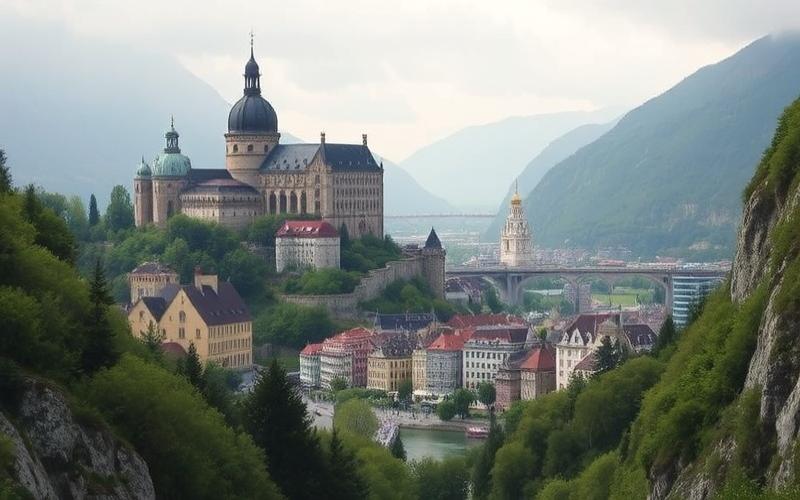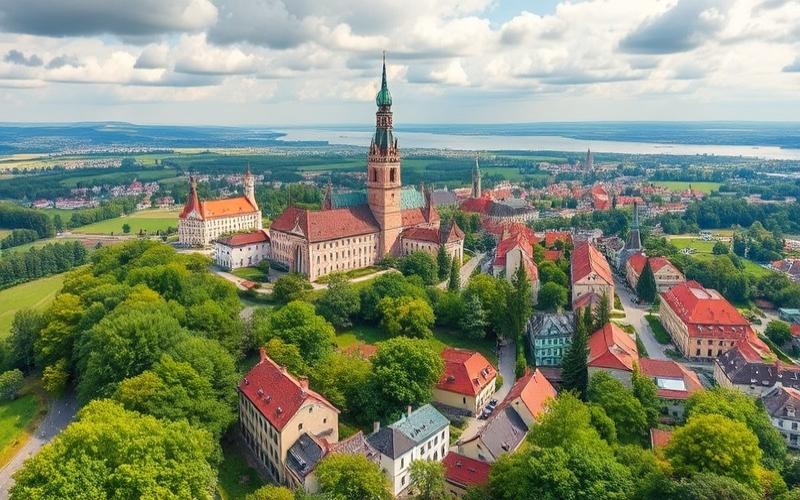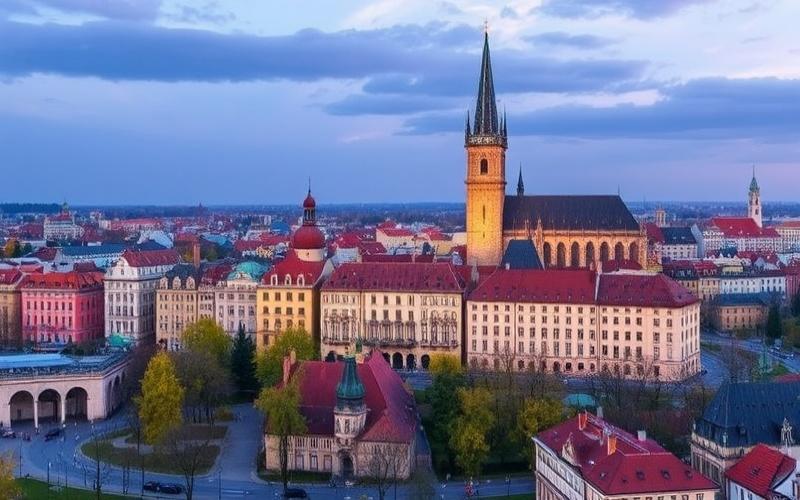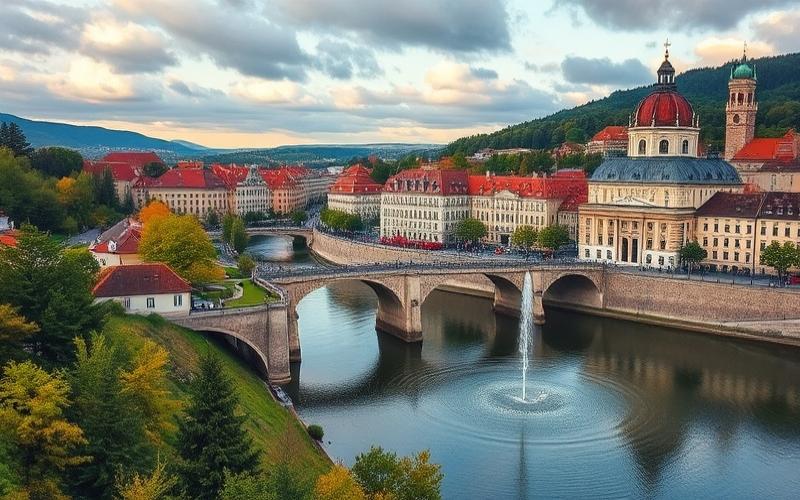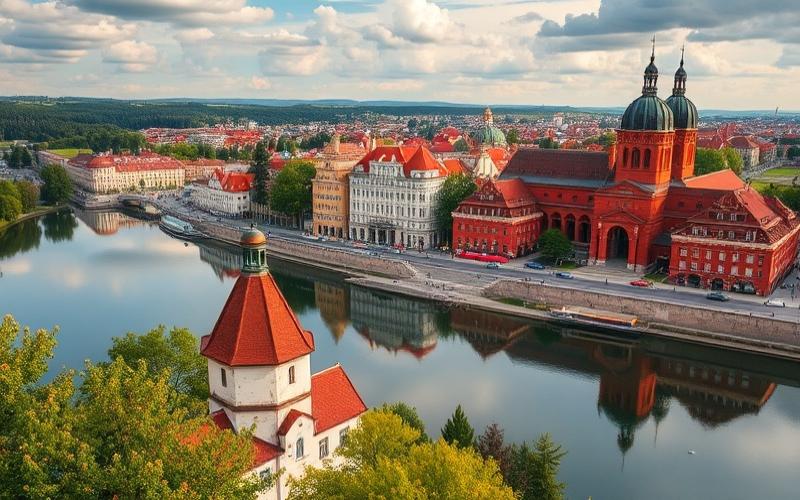
 Published on and written by Cyril Jarnias
Published on and written by Cyril Jarnias
Real Estate in Poland and the Emergence of “Dark Stores”
Real estate in Poland is undergoing numerous transformations, and among them emerges the intriguing phenomenon of “dark stores”. These online order warehouses, which enable extremely fast delivery of consumer goods, are beginning to reshape the urban landscape and influence real estate market dynamics.
As these facilities multiply, they’re sparking active dialogue among investors, urban residents, and policymakers about their economic and environmental impact.
Rapid Growth in Urban Centers
At the heart of major Polish urban centers, these structures invisible to consumers but omnipresent in modern logistics are experiencing rapid growth and raising crucial questions for the future of cities.
Good to Know:
“Dark stores” are warehouses dedicated exclusively to preparing online orders, with no physical access for customers.
Reasons Behind the Rise of Dark Stores in Poland
Dark stores have developed rapidly in Poland thanks to a combination of favorable socioeconomic, technological, and regulatory factors.
Key Factors Driving the Growth of Dark Stores in Poland:
Changes in Consumer Habits
- Polish consumers are massively adopting online commerce, particularly for food products and essential goods.
- 55% of Poles now prefer to do their grocery shopping online, with increased demand for fast delivery and access to fresh products.
- The rise of remote work and the search for practical solutions have accelerated this shift.
Digitalization and E-commerce Growth
- Advanced digitalization of the retail sector facilitates logistics management (real-time inventory management, data analytics).
- Mobile app usage by a young urban population has strengthened the adoption of digital services.
- The food segment dominates the Polish dark store market due to its high purchase frequency.
Foreign Investments
| Main Investors | Origin | Market Impact |
|---|---|---|
| Auchan | France | Rapid deployment of urban locations |
| DoorDash | United States | Logistics innovation |
| Ocado | United Kingdom | Automation & AI |
These investments bring capital, technological innovations, and international expertise, accelerating the professionalization of the sector.
Government Policies & Local Infrastructure
- Local authorities facilitate the granting of licenses to quickly transform or lease vacant urban premises.
- Modern road infrastructure in major cities (Warsaw, Krakow) enables efficient urban logistics.
Competitive Advantages Specific to the Polish Market:
- Real estate costs still moderate compared to major European capitals, allowing for dense networks of small urban warehouses
- Young, connected population very receptive to new consumption patterns
- Strong urbanization offering a large pool of potential users within a limited radius
Main Assets Attracting Entrepreneurs to This Model Over Traditional Retail:
- Significant reduction in operational costs (no need for expensive retail spaces or sales staff)
- Optimization of last-mile delivery through strategic location near end customers
- Superior capacity to handle high volumes during peak periods (sales/special events)
- Increased flexibility in response to rapid changes in consumer trends
Dark stores are thus establishing themselves as an agile model perfectly meeting current expectations of Polish consumers while benefiting from a particularly favorable local environment.
Good to Know:
The rise of dark stores in Poland is driven by several key factors, including evolving consumer habits among Poles, who are increasingly oriented toward the convenience and speed offered by online shopping. Digitalization and rapid e-commerce growth have contributed to this transformation, supported by significant foreign investments in the sector. Pro-business government policies and well-developed local infrastructure have facilitated the establishment of these urban warehouses. The Polish market offers competitive advantages, such as relatively low urban real estate costs and affordable skilled labor, which attract investors to this model over traditional stores. Dark stores meet growing demand for fast and efficient deliveries, a trend illustrated by the popularity of 15-minute delivery services, marking a notable shift in purchasing behaviors.
The Impact of Dark Stores on Polish Urban Real Estate
The emergence of dark stores is profoundly disrupting real estate supply and demand in Polish urban areas. These logistics platforms, closed to the public and dedicated to rapid e-commerce order preparation, are accelerating the transformation of many traditional commercial or vacant industrial premises into optimized storage spaces.
Main Changes Observed in the Real Estate Market:
- Rapid conversion of former stores, small supermarkets, or commercial spaces into urban warehouses.
- Selective rent increases for strategic central locations well-served by roadways or close to urban cores.
- Progressive valuation of peripheral and industrial zones previously underutilized through their reassignment to modern urban logistics.
| Urban Zone | Effect on Real Estate Prices | Expected Evolution |
|---|---|---|
| City Center | Targeted Increase | High rents for adapted warehouses; increased store vacancy |
| Periphery/Industrial | Moderate Appreciation | Increasing optimization based on urban density |
Evolution of Leasing and Purchase Models:
- Increased demand for flexible contracts allowing quick adaptation to changing logistics needs.
- Property owners sometimes prefer conversion to the “dark store” model rather than accepting prolonged vacancy linked to the decline of traditional physical commerce.
- Emergence of specific leases adapted to technical requirements (security, 24/7 delivery access, enhanced electrical capacity).
Reactions of Property Owners and Real Estate Investors:
Advantages
- New opportunity to quickly value certain assets previously difficult to rent or sell (atypical premises, obsolete spaces).
Concerns
- Potential risk to residential attractiveness due to generated nuisances (noise from nighttime deliveries, constant courier traffic).
Strategies
- Some investors now specialize in identifying then technically adapting assets intended exclusively for the “dark store” sector.
Urban Regulations & Local Policies:
- Regulatory Redefinition: Many municipalities now officially classify these premises as warehouses/logistics to limit their establishment in city centers.
- Increased Regulation: Restrictions on operating hours or permitted volumes; increased environmental obligations (waste/noisy waste management).
- Citizen Consultation: Greater consideration of resident dissatisfaction during new projects.
⚠️ Local policies thus tend to strongly curb uncontrolled expansion in historic centers while favoring more controlled development toward certain industrial peripheries.
Long-term Implications for Urban Planning and Economic Development:
- Partial but uneven reactivation of vacant commercial real estate inventory
- Lasting transformation of the urban landscape with the rise of integrated logistics (“last-mile logistics”)
- Additional pressure on certain central real estate segments potentially worsening traditional commercial vacancy
- Progressive strengthening of dual functional urban planning: mixed residential-logistical sectors versus purely commercial zones
Important Boxed Text:
The massive rise of dark stores requires a deep revision of both regulatory and strategic frameworks for all Polish urban real estate players; it is already durably reshaping the economic and spatial face of affected metropolitan areas.
Good to Know:
In Poland, the emergence of dark stores has transformed the urban real estate landscape by influencing both the supply and demand for commercial spaces. These entities, often located in central and developing areas, are altering traditional leasing models, as they require less storefront, prioritizing functionality over visibility. This sometimes leads to downward pressure on real estate prices for frontline premises while increasing demand for suitable storage spaces in back areas. Property owners and investors are adapting by reorganizing their portfolios to include smaller, more flexible units. Polish municipal authorities are also beginning to adapt their regulations, balancing between facilitating this innovative model and protecting traditional local businesses. Long-term, the proliferation of dark stores could reshape urban planning and stimulate significant economic changes, although their full impact remains to be observed.
E-commerce Investment and the Role of Dark Stores
Dark stores are warehouses or distribution points dedicated exclusively to preparing and shipping online orders. They are not accessible to the public: they are essentially spaces optimized for storage, picking, packaging, and rapid delivery of products ordered online. This organization ensures efficient e-commerce logistics, particularly for fast urban deliveries (often in less than 15 minutes), while maintaining operational costs lower than those of a traditional store.
Operation of a Dark Store:
- Reception and storage of goods
- Online order placement by customer
- Preparation (picking/packing) by dedicated employee
- Direct delivery to customer’s home or pickup via “click and collect”
| Characteristics | Traditional Store | Dark Store |
| Customer Access | Yes | No |
| Function | Sales & Display | Logistics/Fulfillment |
| Location | City Centers/Commercial Areas | Strategic Urban Areas, Near Roadways |
Investor Interest in Dark Stores in Poland
Poland strongly attracts investors in this sector thanks to several factors:
- Sustained growth of Polish e-commerce since the pandemic.
- Strong urbanization with a young, connected population.
- Real estate costs still competitive compared to Western European markets.
- Suitable urban infrastructure allowing rapid establishment of small warehouses near city centers.
- Relatively flexible legislation regarding digital commerce.
Key points making Poland attractive:
- Dynamic e-commerce market (structural post-pandemic increase)
- Land availability in emerging secondary cities
- Skilled workforce at moderate cost
Influence on the Polish Real Estate Market
Dark stores are significantly modifying urban real estate demand:
Marked increase in demand for:
- Small urban warehouses
Good to Know:
Dark stores, warehouses dedicated exclusively to preparing online orders with no public access, play a central role in Poland’s e-commerce boom. This model attracts investors due to strong urbanization and rapid e-commerce growth in the country. These installations directly influence the Polish real estate market, generating increased demand for urban commercial and industrial properties. Trends indicate growing interest despite potential regulatory challenges and concerns regarding zoning or urban logistics. Socio-economically, dark stores offer a dual impact; they generate jobs while posing threats to traditional businesses, participating in the redefinition of urban centers.
Disclaimer: The information provided on this website is for informational purposes only and does not constitute financial, legal, or professional advice. We encourage you to consult qualified experts before making any investment, real estate, or expatriation decisions. Although we strive to maintain up-to-date and accurate information, we do not guarantee the completeness, accuracy, or timeliness of the proposed content. As investment and expatriation involve risks, we disclaim any liability for potential losses or damages arising from the use of this site. Your use of this site confirms your acceptance of these terms and your understanding of the associated risks.





